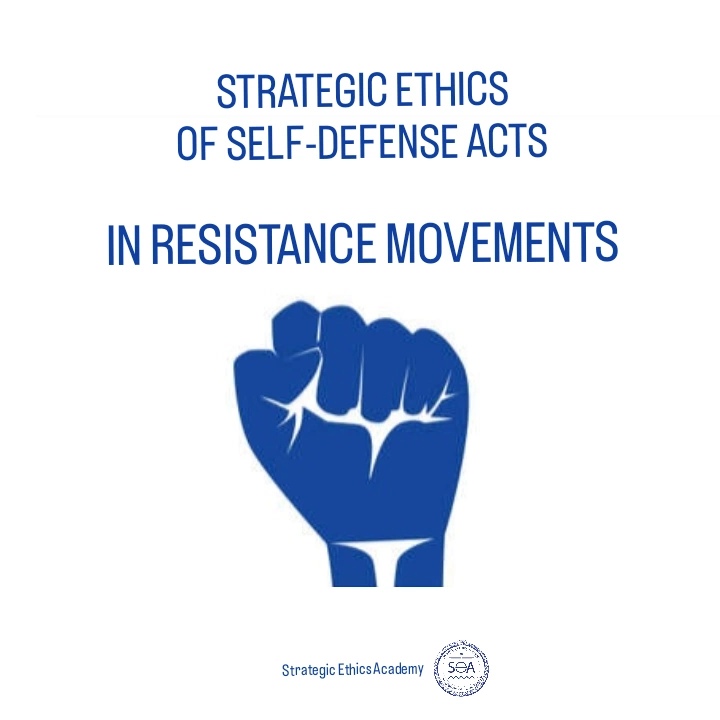

The strategic ethics of self-defense acts in resistance movements against occupation or foreign intervention, involve complex considerations that balance moral principles and international law with the strategic effectiveness of resistance acts, whilst taking into consideration the practical constrains that may influence the ethical choices available for self-defense.
The context of self-defense acts varies widely, and the ethical dimensions of resistance movements and can be highly subjective. Primarily, an ethical dimension of resistance should be preceded by sincere diplomatic efforts to resolve the conflict peacefully, before it proceeds to acts of violence despite being self-defense acts; and these acts should not preclude engaging in negotiations, even while actively resisting, to an extent that the efforts can demonstrate a commitment to peaceful resolutions and may help garner international support for the resistance cause.
Ethical self-defense requires a proportional response to the threat. The use of force should be necessary and not excessive relative to the threat faced. Resistance movements must carefully define legitimate targets and should aim to discriminate between combatants and non-combatants, by which the deliberate targeting of civilians is generally considered unethical and is considered as well a violation of international humanitarian law (IHL). Hereby, adherence to international humanitarian law is crucial, for which compliance with IHL enhances the legitimacy of the resistance movement. In this regard, efforts should be made not only to minimize harm to civilians, but to civilian infrastructure as well, by means of careful planning of operations to avoid unnecessary casualties and damage.
In this context, it is significant to mention that the means and methods used in the self-defense acts such as choice of weapons and tactics should align with international ethical standards, by means of avoiding indiscriminate or inhumane methods of resistance such as prohibited weapons, and chemical or biological agents that are universally condemned. Moreover, the resistance movement should be committed to protecting the basic rights of individuals, regardless of their affiliation; and should therefore establish mechanisms for internal governance and accountability through which instances of unethical behavior or violations of international law are addressed to maintain credibility and legitimacy.
On another hand, consideration of public opinion, both domestically and internationally, is vital for garnering support and legitimacy for the resistance cause; and Maintaining the moral high ground for the resistance cause can as well serve as a strategic advantage. In this regard, ethical acts of self-defense should be aligned with the broader ethical objectives and long-term goals of the resistance movement, in order to be ethically justifiable. Resistance movements must adapt their strategies and tactics based on ethical considerations of the evolving circumstances, by which an ethically healthy adaptability should be integral for the movement’s actions to remain defensible from a moral standpoint.
More importantly, planning for post-conflict resolution and reconciliation is vital for the morality of the resistance movement cause, due to the fact that ethical considerations extend beyond immediate tactical concerns of self-defense to long-term goals of attaining sustainable peace. To this, it should be kept in mind that the ethical conduct of post-conflict acts, by means of upholding human rights, promoting freedom and sovereignty, and working towards a just and stable society, contribute to the ethical legacy of the movement; for how a resistance movement conducts itself after achieving its goals, is crucial for defining the ethical dimensions of the resistance.
